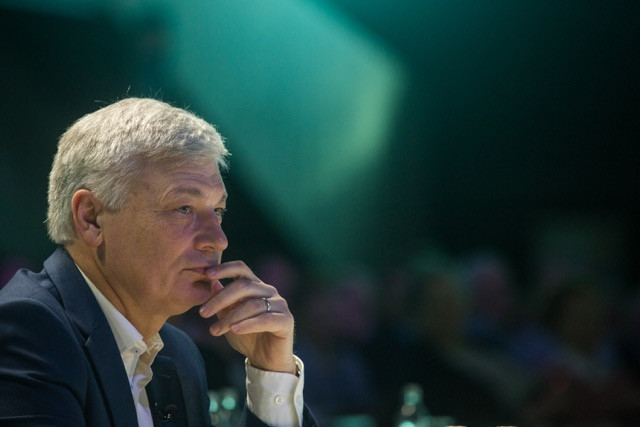The beleaguered CSV party on Saturday voted in Claude Wiseler as its new party president. The sole candidate for the leadership, Wiseler won 84.6% of the vote at a national congress in Junglinster. The party’s lead candidate at the 2018 parliamentary elections, Wiseler replaces Frank Engel who stepped down and has now quit the party altogether after a tumultuous few months.
The party has taken the unusual step of doubling up on its leadership posts. 31-year old Elisabeth Margue, the former head of the party’s CSJ youth section, was elected a co-president. MEP Christophe Hansen was voted general secretary of the party, alongside lawyer Stéphanie Weydert. And the two vice-presidents are Anne Logelin and Paul Galles. The idea, Wiseler says, is to give new faces prominence and to make the party more youthful. Gilles Roth joins Martine Hansen as joint leader of the CSV’s parliamentary faction.
Wiseler told RTL on Monday morning that he wanted to work as a team, and that the part president has to consult with the leadership and membership before announcing new policies via the broadcaster--a reference to Frank Engel’s contentious decision last summer to say he supported a wealth and reform of inheritance tax even though that was not official party policy at the time.
Wiseler declined to answer questions about party finances which have been in the spotlight since Engel was reported to the public prosecutor’s office by party members over a contract with the CSV Frëndeskreess (a non-profit outfit that holds the CSV’s property, as political parties cannot own real estate). He only wanted to talk about a new start for the party, and to draw a line under the Engel affair.
But Engel wasn’t going quietly. He was refused a request to write a letter to the party membership, but was able to get his message across via an interview on social-cultural radio 100,7. Engel, who was elected by 54% of the party membership at the 2019 national congress, says there was a dedicated group who wanted to fight him by whatever means necessary from the start. Following the policy controversy last summer, that position intensified, and he said that by Christmas 2020 he had decided that “it just wasn’t worth it.”
Engel has confirmed that he will form his own political party, but that he will not rush into anything.
There is no doubt that the CSV has been damaged by the sorry affair. Once the natural party of government--up until 2013 it had been the majority coalition partner in all but one government (Gaston Thorn’s DP led coalition from 1974-1979) since WWII. But since losing Jean-Claude Juncker as its figurehead, the party has struggled to find a leader with the charisma and political nous to make an impact. It still wins the most votes of any single party at national elections but has seen its share of the vote decline from 38% in 2009 to just over 28% two years ago. Wiseler has another two years to reunite the party, steer it in the right direction, and find a lead candidate that can appeal to a new generation of voters in time for the October 2023 elections.
